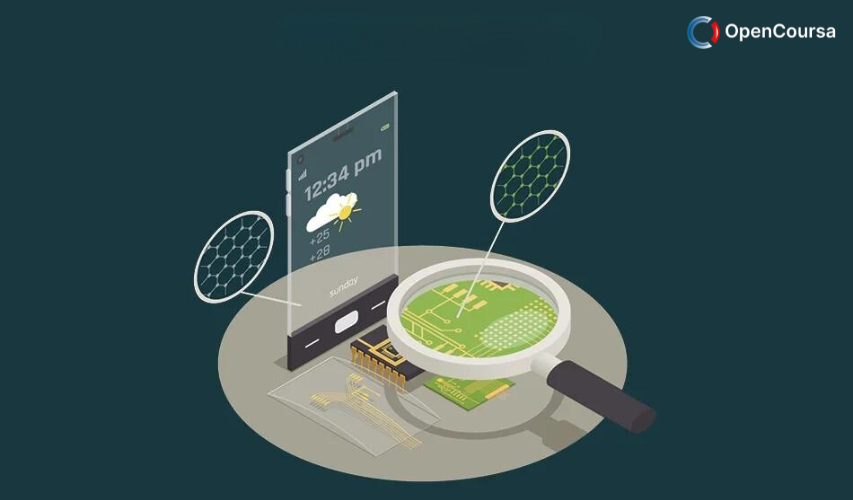Home » Course Layouts » Free Course Layout Udemy
Nanoelectronics: Devices and Materials. Instructors: Prof. Navakanta Bhat, Prof. S. A. Shivashankar and Prof. K. N. Bhat, Centre for Nano Science and Engineering, IIT Bangalore.
0
English
English [CC]
- Learn basic syntax that can apply to any language.
- Learn what is a programming language and the basic concepts for beginners.
- Understand what is Javascript in it's truest form.
- Know the basic syntax of Javascript.
- Know some hidden quirks in Javascript.
Description
The objective of this course is to present the state of the art in the areas of semiconductor device physics and materials technology to enable the Nanoelectronics. The fundamentals of classical CMOS technology will be discussed and the issue in scaling MOSFET in the sub-100 nm regime will be elaborated. In this context the need for non-classical transistors with new device structure and nano materials will be elucidated. The issues in realizing Germanium and compound semiconductor MOSFET will be presented. Extensive materials characterization techniques will also be discussed, which help in engineering high performance transistors. (from nptel.ac.in)
Course content
- Lecture 01 – Introduction to Nanoelectronics Unlimited
-
- Lecture 02 – CMOS Scaling Theory Unlimited
- Lecture 03 – Short Channel Effects Unlimited
- Lecture 04 – Subthreshold Conduction Unlimited
- Lecture 05 – Drain Induced Barrier Lowering Unlimited
-
- Lecture 06 – Channel and Source/Drain Engineering Unlimited
- Lecture 07 – CMOS Process Flow Unlimited
- Lecture 08 – Gate Oxide Scaling and Reliability Unlimited
- Lecture 09 – High-k Gate Dielectrics Unlimited
- Lecture 10 – Metal Gate Transistor Unlimited
- Lecture 11 – Industrial CMOS Technology Unlimited
- Lecture 12 – Ideal MOS C-V Characteristics Unlimited
- Lecture 13 – Effect of Non-idealities on C-V Unlimited
- Lecture 14 – MOS Parameter Extraction from C-V Characteristics Unlimited
- Lecture 15 – MOS Parameter Extraction from I-V Characteristics Unlimited
- Lecture 19 – SOI Technology and Comparisons with Bulk Silicon CMOS Technology Unlimited
- Lecture 20 – SOI MOSFET Structures, Partially Depleted and Fully Depleted SOI MOSFETs Unlimited
- Lecture 21 – FD SOI MOSFET: Operation Modes and Threshold Voltages and Electric Fields Unlimited
- Lecture 22 – Subthreshold Slope and SCE suppression in FD SOI MOSFET, Volume Inversion … Unlimited
- Lecture 26 – Germanium as an Alternate to Silicon for High Performance MOSFETs and … Unlimited
- Lecture 27 – Germanium MOSFET Technology and Recent Results on Surface Passivated … Unlimited
- Lecture 28 – Compound Semiconductors and Heterojunction FETs for High Performance Unlimited
- Lecture 29 – GaAs MESFETs: Enhancement and Depletion Types, Velocity Overshoot Effects … Unlimited
- Lecture 30 – Heterojunctions and High Electron Mobility Transistors (HEMT) Unlimited
- Lecture 32 – Basic Principles of Quantum Mechanics Unlimited
- Lecture 33 – Basic Principles of Quantum Mechanics (cont.) Unlimited
- Lecture 34 – Energy Bands in Crystalline Solids Unlimited
- Lecture 35 – Quantum Structures and Devices Unlimited
- Lecture 39 – Carbon Nanostructures and CVD Unlimited
- Lecture 40 – Atomic Layer Deposition (ALD) Unlimited
N.A
- 5 stars0
- 4 stars0
- 3 stars0
- 2 stars0
- 1 stars0
No Reviews found for this course.










